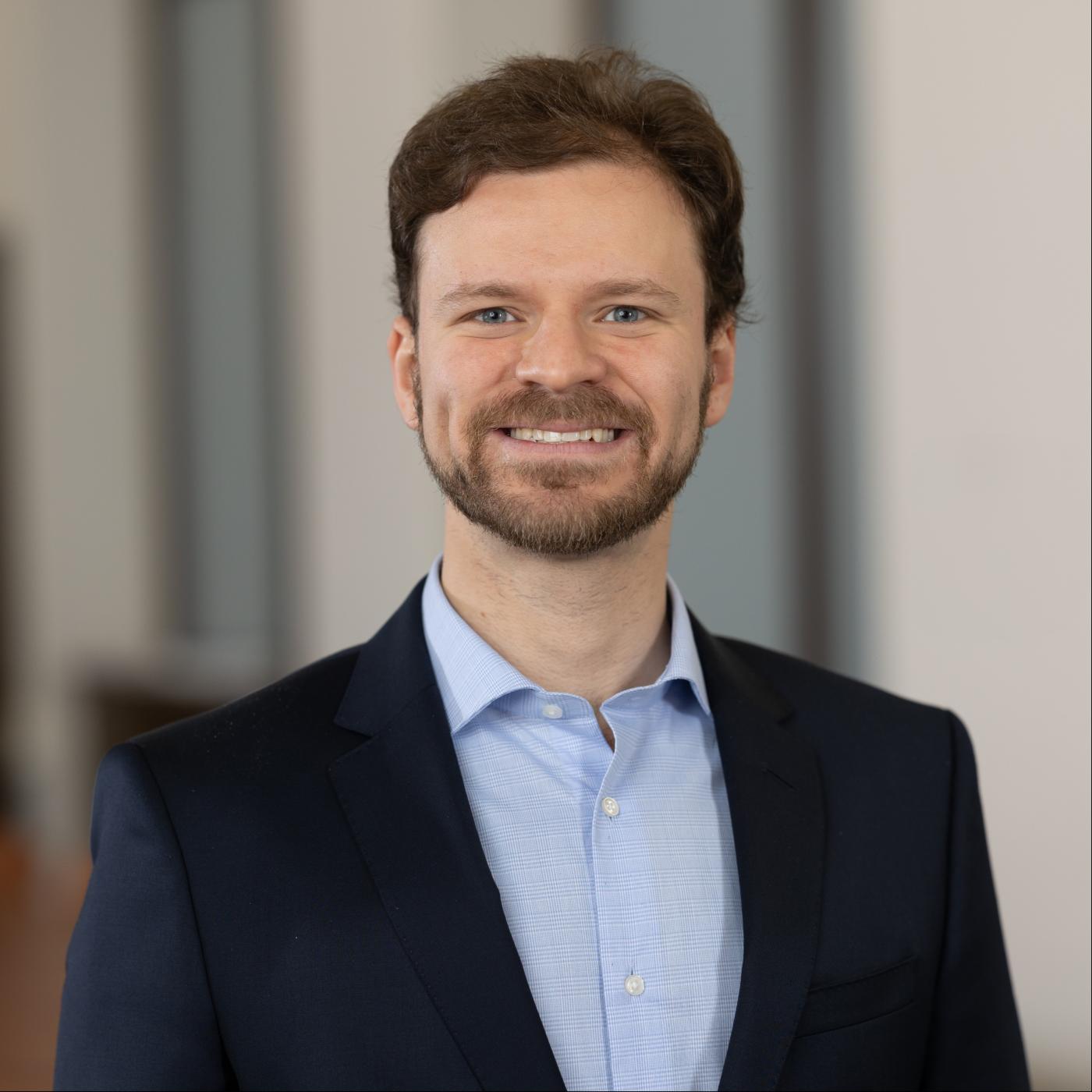Kurtis Carsch
- Assistant Professor
- Chemistry

Contact Information
Biography
Kurtis grew up near Dallas, TX, and he began his interest in chemistry by researching selective methane functionalization with Tom Cundari at the University of North Texas as a part of the Texas Academy of Mathematics and Science (TAMS) program. Kurtis then attended Caltech and received a joint B.S./M.S. in chemistry, where he conducted computational and experimental research on bio-inspired clusters of the oxygen-evolving complex in Photosystem II with Bill Goddard and Theo Agapie. During his undergraduate studies, Kurtis additionally worked at SAFCell Inc., UOP Honeywell, and examined the coordination chemistry of first-row transition metal ions in trigonal ligand fields with Susanne Mossin at the Technical University of Denmark.
As a Hertz Fellow and a NSF Graduate Research Fellow, Kurtis conducted his Ph.D. research with Ted Betley at Harvard, where he focused on understanding amination catalysis by copper nitrene intermediates through the lens of inverted ligand fields, receiving the Hertz Thesis Prize for his research. Kurtis was then an Arnold O. Beckman Postdoctoral Fellow at the Institute for Decarbonization Materials at the University of California, Berkeley, with Jeff Long, where he established elementary organometallic transformations in the context of chemical separations and discovered the field of high-temperature adsorption.
In January 2025, Kurtis returned back to the State of Texas to start his independent research program at The University of Texas at Austin within the Department of Chemistry. Outside of his research, Kurtis enjoys eating spicy foods, hiking in the mountains, and exploring the broader Texas Hill Country area.
Research
The Carsch Group at The University of Texas at Austin will merge fundamental design principles from synthetic inorganic and organic chemistry, organometallic catalysis, chemical engineering, and materials science to manipulate the electronic structures of coordinatively unsaturated metal ions in both molecular complexes and extended porous materials to advance catalysis, separations, and material processability. In particular, we are interested in designing transition metals with unusual electron counts and coordination environments to explore their propensity for new bond activations and transformations.
The focus of our ambitious research program will address topics across alkane homologation, C–H functionalization, ambient air separations, liquid chemisorption, microporous metallopolymers, ultramicroporous polycrystalline membrane, ligand field inversion, hyper-low-coordinate metal ions, frustrated metalloradical pair catalysis, multi-gas single-site binding, MOF gels, and liquid porous materials.
Early-career researchers will establish critical reasoning skills, gain interdisciplinary expertise to bridge disparate concepts, and master both synthesis and characterization techniques to ultimately become independent scientists. We will employ a broad suite of spectroscopic and diffraction techniques, electrochemical methods, imaging probes, and film deposition approaches.
Fields of Interest
- Inorganic Chemistry
- Materials
Centers and Institutes
- Texas Materials Institute
Publications
For a full list of publications, see https://scholar.google.com/citations?user=CNI-XjIAAAAJ&hl=en
Representative Publications:
- Rohde, R. C.†; Carsch, K. M.†; Dods, M. N.; Jiang, H. Z. H.; McIsaac, A. R.; Klein, R. A.; Kwon, H.; Karstens, S. L.; Wang, Y.; Huang, A. J.; Taylor, J. W.; Yabuuchi, Y.; Tkachenko, N. V.; Meihaus, K. R.; Furukawa, H.; Yanhe, D. R.; Bustillo, K. C.; Minor, A. M.; Reimer, J. A.; Head-Gordon, M.; Brown, C. M.; Long. J. R. High-Temperature Carbon Dioxide Capture in a Porous Material with Terminal Zinc–Hydride Sites. Science 2024, 386, 814. († equal contribution).
- Carsch, K. M.; Huang, A. J.; Dods, M. N.; Parker, S. T.; Rohde, R. C.; Jiang, H. Z. H.; Yabuuchi, Y.; Kwon, H.; Karstens, S. L.; Chakraborty, R.; Bustillo, K. C. Meihaus, K. R.; Furukawa, H.; Minor, A. M.; Head-Gordon, M.; Long. J. R. Oxygen-Selective Adsorption from Air with a Metal–Organic Framework Featuring Open Copper Sites. J. Am. Chem. Soc. 2024, 146, 3160.
- Carsch, K. M.; Iliescu, A.; McGillicuddy, A. D.; Mason, J. A.; Betley, T. A. Reversible Scavenging of Dioxygen from Air by a Copper Complex. J. Am. Chem. Soc. 2021, 143, 18346.
- Carsch, K. M.; DiMucci, I. M.; Lukens, J. T.; Iovan, D.A.; Zheng, S.-L.; Lancaster, K. M.; Betley, T. A. Electronic Structures and Reactivity Profiles of Aryl Nitrenoid−Bridged Dicopper Complexes. J. Am. Chem. Soc. 2020, 142, 2264.
- Carsch, K. M.; DiMucci, I. M.; Iovan, D. A.; Li, A.; Zheng, S.-L.; Titus, C. J.; Lee, S. J.; Irwin, K. D.; Nordlund, D.; Lancaster, K. M.; Betley, T. A. Synthesis of a Copper-Supported Triplet Nitrene Complex Pertinent to Copper-Catalyzed Amination. Science 2019, 365, 1138.
Awards
- 2022 CAS Future Leader (2022)
- Fannie and John Hertz Thesis Prize (2022)
- Arnold O. Beckman Postdoctoral Fellowship (2021)
- Peter Strauss Fellowship (2021)
- Ludo Frevel Crystallography Scholarship (2020)
- Harvard Distinction in Teaching Award (2019)
- 2016 ACS Undergraduate Award in Inorganic Chemistry (2016)
- Richard P. Schuster Memorial Prize (2016)
- George W. Green Memorial Prize (2016)
- Fannie and John Hertz Foundation Fellowship (2016)
- National Science Foundation Graduate Research Fellowship (2016)
- Arie J. Haagen-Smit Memorial Award (2015)
- Copenhagen Scholars Study Abroad Scholarship (2014)
- ACS & Society for Chemical Industry Scholarship (2014)
- Renuka D. Sharma Award (2014)
- Intel Science Talent Search Finalist (2012)
- University of North Texas Dean’s Research Award (2011)
- Texas Academy of Math and Science Summer Research Scholarship (2011)
